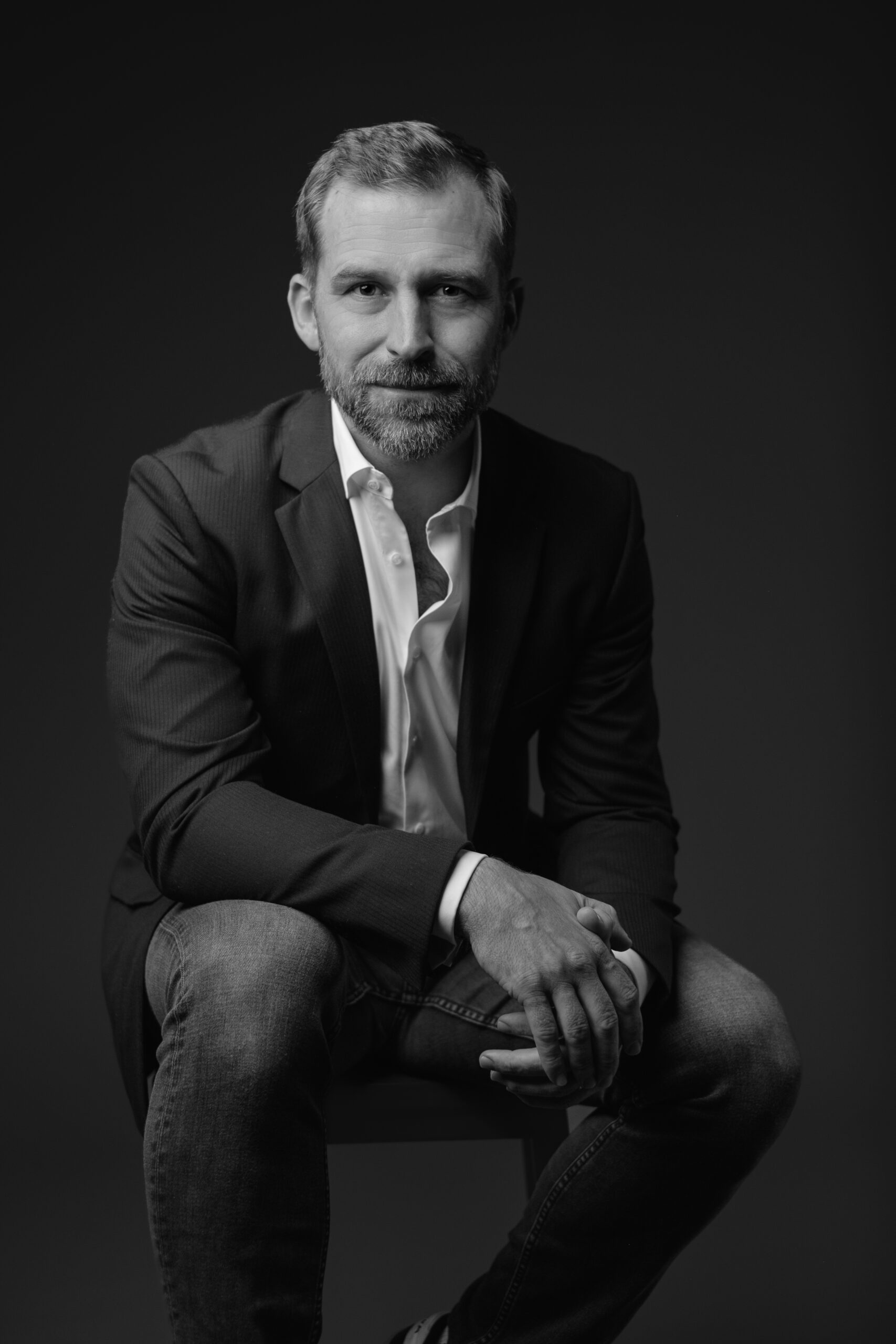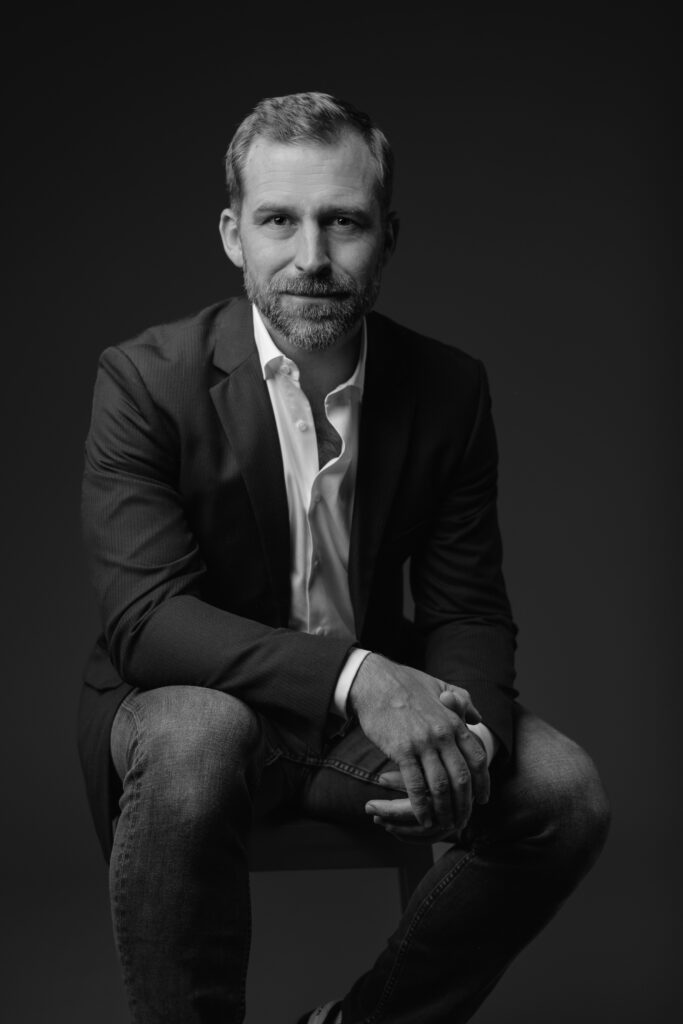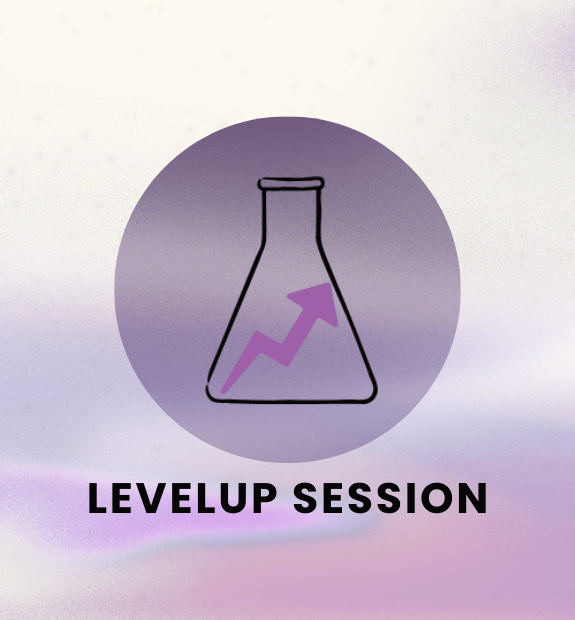Episode 274 30 Jul, 2025
Is It Really a People Problem – or a Leadership Opportunity? Busting Myths About Leadership with Adrian Koehler
-
 With Adrian Koehler
With Adrian Koehler

As a group practice owner, it’s easy to assume your struggles are about hiring or team dynamics, when what’s really needed is some honest reflection and strong leadership training for teams.
In this episode, I sat down with leadership coach, Adrian Koehler to unpack what’s actually going wrong in many therapy practices: leadership mistakes that no one wants to talk about.
Adrian and I get into the real reasons leaders get stuck, why “being nice” isn’t always kind, and how your discomfort might be costing your business.
We bust some major myths about leadership, and Adrian shares what therapists-turned-leaders need to know if they want to grow a team that’s healthy, honest, and aligned.
Here’s what we cover in this powerful conversation:
- The #1 blind spot that leads to the most common leadership mistakes – and how to start fixing it today
- What to do if you’ve given someone too many chances and it’s starting to hurt your team (spoiler: it’s not just about writing a PIP)
- Why great therapists often struggle as leaders, and how to overcome that disconnect with the right leadership training for teams
- The truth about radical candor, “ruinous empathy,” and how these hidden habits damage team culture
- How to ask yourself one simple (but daring) question that reveals how to improve as a leader in your group practice
Whether you’re leading a small team or managing a growing staff, this episode will challenge how you think about leadership – and how you show up for your people.
LINKS:
Need extra support? Join The Exchange, a membership community just for group practice owners.
The Group Practice Exchange Programs + Courses
The Accountability Equation™ Quiz
The Accountability Equation Book
Group Practice Forecasting Support GPT
CONNECT WITH MAUREEN WERRBACH & THE GROUP PRACTICE EXCHANGE:
CONNECT WITH ADRIAN KOEHLER:
SPONSORS:
TherapyNotes: An EHR software that helps behavioral health professionals manage their practice with confidence and efficiency. Go to therapynotes.com/r/thegrouppracticeexchange for two free months!
GreenOak Accounting: An accounting firm that specializes in working with group practices. Mention TGPE to get $100 off your first month!
Transcript: Adrian Koehler
[00:00:00] Maureen Hermann: Welcome to another episode of the Group Practice Exchange Podcast. Today I have on Adrian Kohler. He is a no-nonsense leadership engagement expert and senior partner at Take New Ground. And today we’re gonna be talking about you not having a people problem, but having a leadership opportunity. Welcome to the Group Practice Exchange Podcast, where we talk about all things related to group practice ownership.
[00:00:26] Maureen Hermann: I’m your host, Maureen Hermann.
[00:00:30] Maureen Hermann: Therapy Notes is changing the game for mental health professionals. It’s an all-in-one EHR practice management and billing platform that actually makes running your practice easier. From secure client messaging and scheduling to notes and billing. Everything’s in one place and their 24 7 customer support is truly unmatched.
[00:00:47] Maureen Hermann: You get a real person, a live human every single time you call. Their latest update therapy fuel is a total time saver. It’s a built-in AI tool that helps you get through documentation faster. Think progress notes from transcripts or summaries, contact notes created from secure messages and automated summaries of client history forms.
[00:01:05] Maureen Hermann: Users are already saying that it’s saving them hours every week. Other new features worth noting is Automated recurring payments for clients, electronic billing for secondary insurance, and a growing outcome measures library to make tracking progress even smoother. If you’ve been on the fence, now’s the time to try it.
[00:01:22] Maureen Hermann: Head over to therapy notes.com. Click start My Free trial, and use the promo code TGPE to get your first two months for free. See why so many therapists trust therapy notes to support their practice, including me. Struggling with your practices finances. Let me tell you about Green Oak Accounting. Green Oak is the industry leader in mental health accounting, and they know exactly what it takes to help your practice thrive, especially when you’re scaling up.
[00:01:47] Maureen Hermann: Green Oak is set apart from the rest by their deep industry knowledge and top-notch advisory and CFO services. Plus they offer traditional accounting services like bookkeeping, tax prep, valuations, and so much more. Here’s what’s in it for you. Peace of mind, financial clarity, and the potential to significantly grow your practice and profits.
[00:02:09] Maureen Hermann: In fact, green Oak has the most impact with practices looking for financial guidance when leveling up thanks to their CFO services, and they’re not just about crunching numbers. They also offer a mix of resources like the Therapy for Your Money podcast, the Profit First for therapist book and self-guided courses to keep you informed and empowered in growing your practice.
[00:02:31] Maureen Hermann: Ready to transform your practice’s financial health. Visit www.greenoakaccounting.com to explore all that they have to offer Green Oak accounting. Your partner in financial prosperity.
[00:02:49] Maureen Hermann: Hey everyone. Welcome back to another episode of the Group Practice Exchange Podcast, and I’m excited that we have Adrian Kohler on. We’re gonna be talking about all things leadership. So, hi Adrian. Thanks for coming on.
[00:03:00] Adrian Koehler: Great to be here. Thanks for having me, Maureen.
[00:03:02] Maureen Hermann: Yeah, how are you doing?
[00:03:03] Adrian Koehler: I’m great. I’m great actually, just hearing your name takes me back to an old friend, old dear friend of mine in college, Maureen.
[00:03:09] Maureen Hermann: Really?
[00:03:09] Adrian Koehler: I know, and I’m gonna have to see where she’s at.
[00:03:12] Maureen Hermann: I have literally only met one other Maureen in my 42 years of life.
[00:03:16] Adrian Koehler: No kidding. Maureen Cody, I think was her name,
[00:03:18] Maureen Hermann: huh?
[00:03:19] Adrian Koehler: Yep. Central Illinois. Anyway,
[00:03:21] Maureen Hermann: yeah, I’m in Illinois.
[00:03:22] Adrian Koehler: Huh?
[00:03:23] Maureen Hermann: I live in Illinois,
[00:03:24] Adrian Koehler: where
[00:03:25] Maureen Hermann: Chicago.
[00:03:26] Adrian Koehler: Got it all right. Yeah. When? Right after undergrad I lived in Lincoln Park.
[00:03:29] Maureen Hermann: Oh, nice. About 15 minutes from me. Awesome.
[00:03:32] Adrian Koehler: Great.
[00:03:32] Maureen Hermann: Okay, so tell people those that are listening that might not know who you are. We’ll be talking about leadership. What makes you a person who likes to talk on this topic?
[00:03:40] Adrian Koehler: Why do I like to talk on the topic? Well, I mean, I think the effectiveness of leadership or the lack of effectiveness leadership generates.
[00:03:48] Adrian Koehler: Health, wellness or the lack thereof, or efficiency and effectiveness? I think leadership is where the world rises and falls. So that could be on a large scale, of course. I mean, that’s where people usually go. But I go all the way down to the individual. I was just talking to my son about it this morning at camp.
[00:04:03] Adrian Koehler: He’s got this field trip on Friday and I’ll be briefing this story, but to prove the point, and I know he’s got some of these counselors that he really likes. And so I was like, oh, which one? Which whose group you’re gonna be in? He’s like, I don’t know. Well, which one would you like to be in? Oh, probably, you know, Chris’s Well, how do the groups get broken up?
[00:04:17] Adrian Koehler: I don’t know. Do you wanna be in Chris’s group? Yeah. What would you need to do to go, maybe go and we just, you know, by the end he’s like, not that interested. And I’m like, alright man. Well, you could either like make choices and get the future you want or you can let you know life happen to you. Therein lies leadership and I just prefer to be on my toes.
[00:04:36] Adrian Koehler: Mm-hmm. Not tell because you can’t control everything. But we get one trip around the bases here in this thing called life, and you might as well go after what you want. Although there’s inherent risk and desiring something,
[00:04:45] Maureen Hermann: yeah,
[00:04:46] Adrian Koehler: might be disappointed. But anyway, that’s what matters. And I think everybody, even the strongest leaders, love to follow and we all love to be inspired and know what to do next.
[00:04:56] Adrian Koehler: And you look up to leaders to kind of see that example.
[00:04:59] Maureen Hermann: Yeah, I like that. And funny enough, because we were talking before recording, we both have two kids kind of in the teens ish area.
[00:05:07] Adrian Koehler: Yeah.
[00:05:07] Maureen Hermann: And I’ll say your story is very similar to, I think, my kids’ stories and probably is what most parents these days are seeing in terms of like needing to really obviously teach our kids how to lead themselves in their own lives.
[00:05:21] Maureen Hermann: ’cause it’ll help them in in the future. Yeah. But like I, I always find it so funny how. Most are so disinterested in that, where they’re like kind of just breezing through life at this point. So,
[00:05:34] Adrian Koehler: yeah. Um,
[00:05:34] Maureen Hermann: I love that you’re. Kind of engaging in that with them and
[00:05:37] Adrian Koehler: Yeah. Well, there’s kind of a, I mean, I know we’re brief on this, so I won’t go into it, but it’s a fun, it’ll be a fun conversation about why that might be, why there might be like a generalized malaise and anyway, I’ve got technological ideas about that as well, but it’s also cool not to care or something like that’s, you know, but what if that’s such a shift from where we’ve been in generations past?
[00:05:56] Adrian Koehler: Even those, there’s evils in all those, every generation as well, but. Anyway, it’s gonna be, I feel like the
[00:06:01] Maureen Hermann: pendulum swings all the time when it comes to these things. Like I’m in my mid forties. It was very much like ida. I was born in Germany, military dad, German mom. We lived out there for a while. I have a very.
[00:06:12] Maureen Hermann: Different upbringing from the way my kids are now, where like mm-hmm. Leading your life was, that was the most important thing. You didn’t rely on people, all this other stuff. And then now it’s like swung kind of in the opposite direction.
[00:06:23] Adrian Koehler: I know.
[00:06:24] Maureen Hermann: Okay. So I wanna know from you what you think the secret or secrets to being a really good leader are, especially in a field like ours, in healthcare or in the service industry.
[00:06:36] Adrian Koehler: Yeah, well I came outta healthcare. I mean, I was, um, I was a pre-med in in college and then decided I actually don’t wanna go be a doctor, so I actually got a nursing degree. And then when I lived in Chicago, I worked at the Children’s Hospital right on uh, Fullerton and used to be in Fullerton and Lincoln.
[00:06:49] Adrian Koehler: Yeah, it’s not, not it’s downtown now, but yeah. So been around healthcare a lot. Love healthcare practitioners as being one. Still my experience is folks that are taking care of, people are there for their people usually don’t take care of themselves very well.
[00:07:02] Maureen Hermann: Mm-hmm.
[00:07:03] Adrian Koehler: Or, and then there’s lots of reasons they justify doing that.
[00:07:06] Adrian Koehler: Whenever I do that too, it’s like, uh, you know, anyway, you can go through a lit, a litany. So why is it important in this field? Well, it, the healthier the practitioners are, the more it’s possible to make the biggest difference with the clients, I would say.
[00:07:19] Maureen Hermann: Yeah.
[00:07:20] Adrian Koehler: So if you’re running a practice and there’s lots of drama going on, that seeps into every room.
[00:07:24] Maureen Hermann: Mm-hmm. Yeah,
[00:07:25] Adrian Koehler: even like on a, I’ll say on a spiritual level, I don’t mean that kind of mystically. I mean, there’s a mood that comes with resentment. There’s a mood that comes with unspoken desires. There’s a mood that comes with favoritism, uh, and lack of forgiveness. And, and there’s a mood that comes with like unshared despair and, and when people are not performing well and know it.
[00:07:45] Adrian Koehler: There’s a mood that comes with gossip. I say it’s on a spiritual level. Again, I just mean like it’s invisible, but it’s palpable.
[00:07:50] Maureen Hermann: Yeah. Yeah. I find that in the helping fields, there are, at least in ours, that I notice that great clinicians aren’t always great leaders, right? Yeah. Like there’s this assumption that if you’re, most of the time they’re
[00:08:02] Adrian Koehler: not right.
[00:08:02] Adrian Koehler: If you’re
[00:08:03] Maureen Hermann: really good at being a therapist, that you’re going to be really good at. Training the next generation of therapists to be good, the therapists or leading them. And I’ve had my own group practice for since 2012, so however many years. Um, and it’s take, it took probably a good three, four, maybe even five years for me to realize that there’s a whole different set of skills that you need outside of being a practitioner for you to lead other practitioners that don’t always translate over.
[00:08:31] Adrian Koehler: Oh yeah. You know, so I’ve been coaching leaders specifically the way I do it now for about 15 years. And I think it’s the same for a therapist, I’m guessing, and I know it’s the same for the people that I coach. So if you’re really good at what you do, so my assumption is that the therapist we’re talking about are really good.
[00:08:46] Adrian Koehler: If you’re really good at what you do, I say what we do most naturally. We teach most poorly. Because there’s so much intuition baked into it, right? Yeah. So if you’re a great therapist, you know the theory behind it and you’ve got, you know, tons of reps and all that kind of stuff. But if someone asked you, how did you know to ask that question or how did you know to get to that insight, you might not know.
[00:09:07] Adrian Koehler: Yeah, because it’s so back of hand for you. Now, I know that even me trying to train other coaches in my team, I’ve had to have some of them listen in. And we’ll record the call and study it.
[00:09:18] Maureen Hermann: Yeah.
[00:09:19] Adrian Koehler: Just so I can see what I was doing. ’cause I’m like in the zone or in the flow or whatever, and just having a real conversation, not like playing a game or not just coloring by numbers.
[00:09:26] Adrian Koehler: So on that side, I think it’s true. So it could be good just to have witnesses to what’s happening. You know, it might not be legal in your world, but that’s true. But then also, yeah. My experience is most people in helping fields, they love to be helpers. They can tend to lean towards like being a nice guy.
[00:09:45] Adrian Koehler: Mm-hmm. And that could be gender neutral and call it kindness, but there’s cowardice baked into that. IE like, so when you’re running a, you know, running a business, you gotta make some tough calls.
[00:09:55] Maureen Hermann: There’s a book by Kim Scott called Radical Candor that I read years ago, and she calls it ruinous Empathy, where you think you’re like being empathetic.
[00:10:03] Adrian Koehler: Yeah.
[00:10:04] Maureen Hermann: And kind, but in reality there’s almost like a manipulation behind it. ’cause it might be people pleasing or something else. Um, I would say it’s not
[00:10:11] Adrian Koehler: almost, I think it’s,
[00:10:12] Maureen Hermann: yeah,
[00:10:12] Adrian Koehler: I’m in my practice a lot more brash than you folks are, but we say in my world, like we’re all criminals and some of us are just more arrestable than others.
[00:10:19] Adrian Koehler: So like, meaning like I, you know, you know, you’re really smart. And I know if I’m like not telling someone the whole truth, I can act like I’m being the nice guy, but I’m holding back and blaming it on charity. Oh yeah. Like, oh, I’m being nice, but for not. You know, you know, let me give the guy another shot.
[00:10:34] Adrian Koehler: Let me get, you know.
[00:10:35] Maureen Hermann: Yeah.
[00:10:36] Adrian Koehler: And what the
[00:10:36] Maureen Hermann: real thing behind it is, like a, a fear of making hard decisions or having hard conversations with other people. And that we mask that with saying that we’re gonna give X amount of chances, but it’s really that we’re afraid and we’re then growing in our own resentment is what I see.
[00:10:51] Maureen Hermann: When people give, leaders give chance after chance without any sort of coaching or support or. Accountability attached to it. We see anger and resentment kind of breed in the leaders. Oh yeah. And then what I find is that there’s a point where they get to where they then just pip them as like a cover your ass sort of thing.
[00:11:10] Maureen Hermann: Like they’re already ready to like let them go, but they’ve done no real work at coaching and supporting that person to. Being better. Right? And just that resentment grew to a point where they’re like, I just need to have like some paper trail showing that I’ve, you know, reprimanded them or whatever through a pip.
[00:11:25] Maureen Hermann: And, but their mind is already made that this person’s not gonna succeed through it.
[00:11:29] Adrian Koehler: Well, if you’re a leader that, and, and most people think they have integrity, right? Or like want to have integrity. You know, like we look in the mirror, we wanna like say I’m a good person. Yeah. But we know it. If you’re, if you’re that leader that’s done that, and by the way, everybody’s done something like that in some level, it’s like you’ve been lying to yourself.
[00:11:46] Maureen Hermann: Yeah.
[00:11:47] Adrian Koehler: You know that I’m, I’m just saying like, even if the person leaves and you get to like craft the story to the staff and blah, blah, blah, and you know, da da, da, but you know, you are lying. Yeah, yeah. And if you don’t deal with that, take responsibility for that, that you, that sticks with you. Yeah. And it, it ends up like we, we had a really fun phrase, remember like a few years ago called the imposter syndrome and everybody used that to hide again and find a way to justify cowardice, which is cool.
[00:12:13] Adrian Koehler: I mean, we’re all cowards. I’m just saying like. We’re not making, you know, now I’ve got a, as soon as we put a label on it, now people could like say, oh, look at what I have. No, you just don’t wanna be seen. That’s okay. That’s just, it’s more vulnerable, to be honest than to hide behind your, you’re looking good in your own eyes, but there’s something else you said.
[00:12:32] Adrian Koehler: Well, we, we call it the shit sandwich principle that like trouble comes to you as a shit hor d’oeuvre and who wants to eat that? So send that back to the kitchen. Hey, now it comes as like a, a sandwich. No, thank you. And then here we go. Now we’ve got the two course meal, and then we finally have the shit buffet.
[00:12:46] Adrian Koehler: But we could have just done the hard thing back in the beginning and now we’re eating the whole buffet.
[00:12:51] Maureen Hermann: Yep.
[00:12:52] Adrian Koehler: So if you’ve got. Most of the time, if you’ve got big trouble and you gotta put ’em on a PIP and or put the person on a PIP and get ’em out of there, it’s because you probably like to tell yourself you didn’t notice or you didn’t think it was a big deal.
[00:13:04] Adrian Koehler: Mm-hmm. But that’s a pretty low bar. Yeah. If you’re a leader, you wanna notice.
[00:13:08] Maureen Hermann: Yep.
[00:13:08] Adrian Koehler: And you wanna care enough to intervene when you see it once or twice.
[00:13:12] Maureen Hermann: Yep, exactly. What would you say is the most common breakdown that you see on leadership teams across the board?
[00:13:19] Adrian Koehler: The most common breakdown on leadership teams?
[00:13:21] Adrian Koehler: Well, unha, unspoken. Unrecognized conversations and conflict is are always happening. Right. So I, I warn folks that we work with, with executive teams, that there are conversations on the table. You’re gonna wanna focus on those. I’m looking for the ones under the table and I will be putting them on the table.
[00:13:40] Adrian Koehler: And if you don’t wanna do that, cool. But the conversations under the table are the ones running your organization. Yep. Because that’s where people spend a lot of time. Trying not to talk about what’s there, you know, or the elephant in the room, or whatever we call it, riding the elephant. It’s like, mm-hmm.
[00:13:54] Adrian Koehler: Some people give them themselves credit for like stating what everybody else was scared of, stating. That’s cool and that is great. That’s usually a step in the right direction, but usually that’s where the gold is. That conversation and why we’ve been avoiding it. And the impact of that and the results that we’ve just chosen not to have because we’ve prioritized our comfort, which it wasn’t that comfortable anyway.
[00:14:14] Adrian Koehler: Right. But we chose, you know, chose to protect ourselves instead of get after that. That’s, that’s worth money usually.
[00:14:19] Maureen Hermann: Yeah, so I see that also on both sides, like from the leadership perspective, but also from like the employees. The clinicians, the administrative staff perspective. And obviously there’s two different reasons for that.
[00:14:32] Maureen Hermann: From the employee side, it might be that they don’t feel like there’s trust. To be had in the leaders to feel safe to communicate whatever is under the table on their end. And so that’s where that, you know, gossip and conversations with other, you know, people at their level might come in versus with leaders who usually it comes from a fear of like.
[00:14:52] Maureen Hermann: Making decisions and having hard conversations.
[00:14:54] Adrian Koehler: Yeah, I mean, all that’s very interesting. I, I would agree. I think that’s how it occurs to most people. Where I go is, so if I’m an employee and there’s a problem, and what we naturally do is settle for. Seeing the problem, complaining about it, enrolling other people in my complaint.
[00:15:11] Adrian Koehler: Mm-hmm. And then just, what are you doing? Then you’re just deciding, hey, my, the potential quality of my existence and work goes from, let’s say my view of it was 80%, maybe it was a hundred, great, but now I’ve just decided no longer is 80% possible. Mm-hmm. Now we’re at 75 because I’ve cemented myself in the complaint.
[00:15:31] Maureen Hermann: Yep.
[00:15:31] Adrian Koehler: Because you’re saying I don’t like, they would say, I don’t feel like there’s enough trust, which is also am. I mean, if I’m the employee, am I committed to being in an organization where we have trust?
[00:15:42] Maureen Hermann: Yeah.
[00:15:43] Adrian Koehler: In that scenario, the answer’s no ’cause they’re gonna go not have trust and blame the leader for that.
[00:15:48] Adrian Koehler: Right. Because there are ways, obviously to go say, Hey, there’s some issues that I have and I I would not be a great teammate if I didn’t bring them up. I don’t know if I can, I don’t know if you’re interested.
[00:15:58] Maureen Hermann: Yeah,
[00:15:58] Adrian Koehler: I don’t know if I’ll be, if I’ll be punished, but for bringing them up. But I’m a person of integrity and I want to bring ’em up in the right way at the right time, so.
[00:16:07] Adrian Koehler: Are you interested in that conversation? I promise to share them in a way that are future forward and solution oriented. You know, for the goodness of the team, and I’m not here to tell anybody, but here to be responsible with my view. Yeah, whatever. That’s a kind of a one way of saying it, but like, yeah, a lot of times people will have a complaint.
[00:16:25] Adrian Koehler: And then hide behind it and then blame what they’re complaining about for their hiding instead of seeing their relationship, their chosen relationship with a complaint. Now that’s human. So what, what’s happening on all the, you know, leadership teams, that’s all happening always. Just ’cause there’s human like, survival is like gravity for humans, looking good, feeling good, being right, being in control.
[00:16:45] Adrian Koehler: Yep. So I’m always sniffing those things out. And our work is really around context, like all that belief world, because that generates all of it. Always lack of clarity, misalignment. Like everybody, like if I come into a leadership team and say, Hey, what, what’s the big outcome here? What do you, what? You know, what’s the purpose?
[00:17:00] Adrian Koehler: Five people, five different answers to that.
[00:17:02] Maureen Hermann: Yep.
[00:17:03] Adrian Koehler: So there’s also so lack of clarity about the future. Also a lack of ownership, a lack of like sober view of what’s happening now. Because everybody’s got something that they’re usually not talking about. Yeah. Or they’re talking about in such a unhelpful way.
[00:17:16] Maureen Hermann: Yeah.
[00:17:17] Adrian Koehler: That it just keeps the complaint alive. So that’s always happening.
[00:17:20] Maureen Hermann: Well, that’s to, to your point you mentioned earlier, is learning how to voice a complaint or concern that’s future focused. That mm-hmm. Maybe. You are coming to it with a potential solution to get the ball rolling versus, mm-hmm. What I see with a lot of leadership team meetings where the same issue is just like circling around leadership meeting after leadership meeting, and it’s just like a complaining fest versus Yeah.
[00:17:44] Maureen Hermann: A solution oriented meeting where the goal is to actually not. Talked through exhaustion at the topic, but sure. Figure out what the root is and what are some solutions and which one do we wanna go go forward with.
[00:17:56] Adrian Koehler: Yeah, I mean, usually I’ve seen that a lot, had that a lot, but on teams like that than that person at times, of course, usually what I think what’s missing is not a conversation about what’s happening, but who’s happening, meaning, so let’s just, can we agree this is happening?
[00:18:09] Adrian Koehler: That’s the what part, but the gutsy part folks aren’t usually willing to do is. Look themselves in the mirror and say, how am I contributing to the complaint that I have?
[00:18:18] Maureen Hermann: Yeah.
[00:18:18] Adrian Koehler: And if you don’t go there, then it makes sense. It won’t go away because it’s not like it’s happening. I’m happening. Mm-hmm.
[00:18:25] Adrian Koehler: Whatever’s, I mean, if you’re deciding to be a leader, if you don’t wanna be a leader, cool. But if you’re, if you’re a leader, then you gotta realize this. It’s, if I’ve complained about it, I used to do this way and like back when I first got started, I’d have like little, little seminars and stuff and I would say, write down your like three biggest complaints in your life, like, what’s not working?
[00:18:41] Adrian Koehler: And they’d write all those down. Or what do you not like? Could be what you don’t like about yourself, about your whatever. It’s, and then I’d have em, date it. How long have you had that complaint? And say, okay, great. Now look at the one you’ve had the longest, and circle it. Now we’re gonna call that one your best friend.
[00:18:57] Adrian Koehler: And they’re aghast, right? It’s like, well, you wonder if you’ve been complaining about things, this thing for five years. And you’re a very smart, future oriented, ambitious person. Whatever you don’t want in your life, you can pretty much get rid of. Yeah. Not everything, but pretty much. So if I, if I’ve not gotten rid of it and I’ve said I don’t like it, I wonder why I actually like it.
[00:19:17] Maureen Hermann: Yep.
[00:19:17] Adrian Koehler: So
[00:19:18] Maureen Hermann: I love that. I wanna think of, if you can, one thing that our listeners could do today, this week to become a better leader in their own group practice.
[00:19:29] Adrian Koehler: One thing you can do, there’s lots of things I think the most daring thing to do. And why not do something daring?
[00:19:36] Maureen Hermann: Yep.
[00:19:36] Adrian Koehler: Is sit down. I know everybody’s really busy.
[00:19:39] Adrian Koehler: Very, very busy. Being busy. So nobody has time for any of this, quote unquote, and hope you pick up my sarcasm. I
[00:19:45] Maureen Hermann: am,
[00:19:46] Adrian Koehler: yeah. Pick up my sarcasm. So let’s just say that it’s worth it to get reflective if you’re a leader and that there’s some freedom on the other side of this exercise. If so, like sit down, I dunno.
[00:19:57] Adrian Koehler: Set a timer for 10 minutes and like what do I know that I’m trying not to know? Meaning if I were to audit, if I was someone else and I was auditing my own practice, what would my concerns be and what would I do about it? Like that’s pretty daring to go get that written down on paper. Mm-hmm. Because then you’re on the hook.
[00:20:18] Adrian Koehler: Right. So I’m inviting you that at least my view is always like the more responsibility, the more freedom.
[00:20:24] Maureen Hermann: Yeah.
[00:20:24] Adrian Koehler: And so I would do that. I mean, you could go and get some feedback from somebody. You could go have the tough conversation. You could probably reach out and ask for some help in some areas of your life, either professionally or personally.
[00:20:35] Adrian Koehler: I know that I always need more help than I want always. I’d love to do it on my own. I’d love not to need anybody. I think I get like a gold star at the end of it. Just like in first grade or whatever. Yeah. But if you’re a leader, you probably pride yourself on doing it yourself, which is a fool’s errand, which I do all the time.
[00:20:51] Adrian Koehler: Same. So if you’re thinking about becoming a better leader, it might be becoming more humble.
[00:20:57] Maureen Hermann: I like that.
[00:20:58] Adrian Koehler: Any of those things could be helpful.
[00:21:00] Maureen Hermann: Yeah. All right, so where can people find you and what, how can you help them?
[00:21:04] Adrian Koehler: Alright, so you can, you can go to Instagram, adrian dot k if you want to see at least more of me talking about stuff.
[00:21:09] Adrian Koehler: I, we had a podcast for several years called The Naked Leadership Podcast. Lots of people love that one. Those are two places to kind of listen in and just see if you’re up for the vibe. Adrian, is it? Yeah. Yeah. Adrian. Uh, koler.com. K oe HLE r.com. The the headliner is, most coaching is bullshit. So the most effective thing, first off, you can reach out.
[00:21:29] Adrian Koehler: Let’s have a conversation. If you’re looking for something for yourself or you think, you know, maybe for your team. We do a four day immersive that is more based on Alerian psychology. We’re not there teaching psychology, and it’s definitely more phenomenological if you’re into, you know, uh, philosophy like he heger and, um, hagel and all those guys, youngian shadow, all this work, but we’re not.
[00:21:52] Adrian Koehler: Certified in that way, and we’re not teaching stuff. It’s a four day journey for folks, usually 25 to 40 people in the room. It’s the most impactful, most dense thing we do. It’s called the Revenant process. We’re having one that’s coming up in a few months. If you want something new, I guarantee you it’ll bring those things to the surface, and most importantly, it’ll bring to the surface the what’s happening for you.
[00:22:17] Adrian Koehler: Like what ideas are governing, keeping you stuck or whatever, where you’ve been now. Yeah. And it’s a loving room and it’s also a jarring room. Like we’re here for you. Like we’re committed to what you’re committed to, which most people don’t think in that context. Like what are you up to? So anyway, the revenue process, you go to take new ground.com.
[00:22:34] Adrian Koehler: Public trainings, Revenant processes there if you want some. We do teach a three month course called The Intrepid. That’s coming up sooner and that’ll rock your world, that’s for sure. We talk about leadership from the context of our philosophy and where we’re coming from, so it’s how to have these conversations more effectively.
[00:22:52] Adrian Koehler: How to move people, how to set of vision that matters, how to clean things up. You end up anyway. It’s really resourceful. I went through both of those things way before I started doing them. Mm. And my business partner is 70. His first coaching company was called The Coaching Company. So he was around. Wow.
[00:23:08] Adrian Koehler: He’s the goat, uh, his name’s Dan Tini. Fascinating guy. So anyway, those are things.
[00:23:13] Maureen Hermann: Awesome. Well, I appreciate it and we’ll make sure to share those things in the show notes as.
[00:23:17] Adrian Koehler: Maureen, great to meet you.
[00:23:18] Maureen Hermann: Great to meet you too. Thanks for listening. Give us five stars on whatever podcast streaming service you use, and I’ll see you next week.
Thanks For Listening
Thanks for listening to The Group Practice Exchange podcast. Like what you heard? Give us five stars on whatever platform you’re listening from. Need extra support? Join The Exchange, a membership community just for group practice owners with monthly office hours, live webinars, and a library of trainings ready for you to dive into. See you next week.












